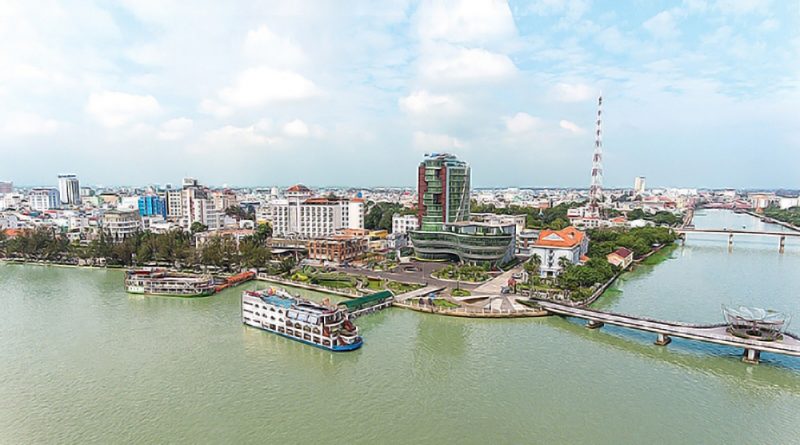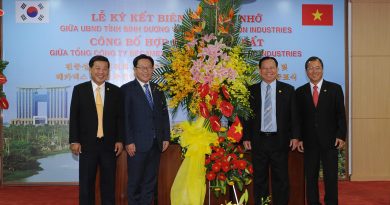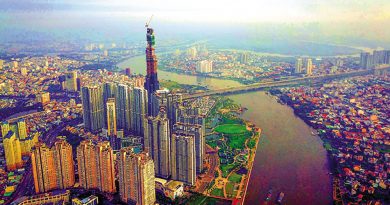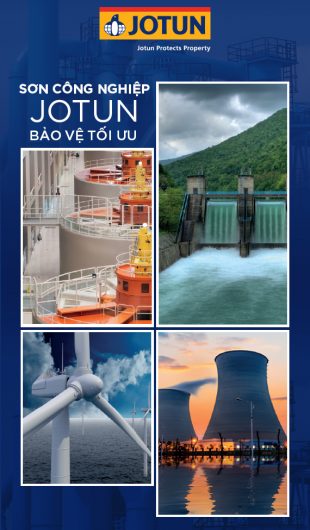Can Tho IZs abound with advantages
Lying in the heart of the Mekong Delta, Can Tho city enjoys numerous advantages for development. As businesses in Can Tho’s industrial zones continue to eye stable annual growth alongside active support from provincial leaders and authorised agencies, VIR’s Truc Giang looks into the city’s potential and recent improvements across the board to turn Can Tho into a truly great place to invest.
In March this year during his visit to Japan, Vo Thanh Thong, Chairman of the Can Tho People’s Committee, granted an investment registration certificate for a seafood processing plant, a joint venture between The Marine Foods Corporation from Japan and local Nam Hai Food Export Ltd. The plant, based in Tra Noc 1 industrial zone (IZ) in Can Tho’s Binh Thuy district and valued at $14 million, aims to process seafood for export to Japan. The plant will become operational from May next year.
Nguyen Thi Kieu Duyen, deputy head of Can Tho Export Processing and Industrial Zones Management Authority (CEPIZA) said that the authority and local leaders have lent support to the project since inception. The open policies, mechanisms, and one-stop shop format in handling investment procedures helped the project receive the investment certificate in a timely fashion.
“We expect that after the project, Can Tho as well as city-based IZs will solicit many more projects from Japanese investors,” Duyen said.
As of now, Can Tho’s export processing zones and IZs are home to 239 valid projects leasing 394 hectares of industrial land. This involves total committed capital of $1.72 billion, of which disbursed capital was $986 million. Of them, 214 projects come from domestic investors valued at $1.31 billion, of which disbursed capital was $736.7 million; and 24 projects come from foreign investors valued at $391.3 million while disbursed capital sits at $237.7 million, as well as one project funded by official development assistance valued at $21.13 million.
Last year, businesses based in Can Tho IZs reported more than $1.52 billion in total revenue, up 8 per cent on-year; and export value amounted to $686 million, a 23 per cent jump on-year, providing jobs to over 33,500 local workers.
In the first four months of this year, the total revenue of businesses operating in the city’s IZs reached $575 million, up 14 per cent on-year. Enterprises’ industrial production value stood at $421 million, trade services at $154 million, and export value at $201 million.

Vo Thanh Thong, Chairman of the Can Tho People’s Committee, granted an investment certificate to a Japanese company for a Tra Noc 1 Industrial Zone project.
Multiple advantages
Spreading along 1,440 square kilometres of natural area in the Mekong Delta, Can Tho is located in the heart of the region. It is about 170 kilometres from Ho Chi Minh City, and plays an important role in all waterway, road, sea, and air transport to other locations domestically and internationally. Can Tho carries the distinct features of an economic, technological, cultural, educational, and healthcare-based centre, providing a strong impulse for the Mekong Delta region’s development.
Since 2004, Can Tho has received due attention from the government. The city has worked on developing a comprehensive infrastructure system, with a raft of important transport works being put into use. Among the most significant facilities are the city’s international airport, Can Tho bridge, Cai Cui port, and national highway 91B.
These projects have helped turn Can Tho into an important commercial exchange centre in the delta region, creating a motivating force for the city’s development. Significantly, the expressway connecting Ho Chi Minh City and Can Tho, and the Trung Luong-My Thuan and My Thuan-Can Tho sections slated for completion next year will help cut travel times in half between the two cities.
Can Tho is also a major human resources training cradle for the delta region. The city is currently home to five universities, one campus of the Ho Chi Minh City University of Architecture and a system of colleges, professional high schools, and more than 60 vocational training facilities which have trained about 350,000 students.
With the improved infrastructure network, Can Tho has enormous potential for development in diverse fields as hi-tech agriculture, industrial processing, tourism, supporting industries, IT, and projects in urban infrastructure development and transport infrastructure, besides finance, banking, and insurance.
With a view to constantly improving its competitiveness and local investment environment, Can Tho is accelerating the construction of IZ infrastructure and placing focus on attracting investment capital, from there pushing up the city’s socio-economic development.
Currently, Tra Noc 1 and Tra Noc 2 IZs have almost leased out. The city is seeking businesses to invest in Hung Phu 1 IZ (Bloc A), Hung Phu 1 (Bloc B), BMC-Hung Phu 2A IZ, and Thot Not IZ’s first phase. The IZs are well-placed in the delta region as each is easily accessible by waterway and roads, and sit on abundant material resources.
In addition, the CEPIZA is accelerating the pace and efficiency of administrative procedure reform to increase support to investors.
Can Tho is also seeking strategic investors for infrastructure development of its three prioritised IZs (see box).

Source: vir.com.vn










